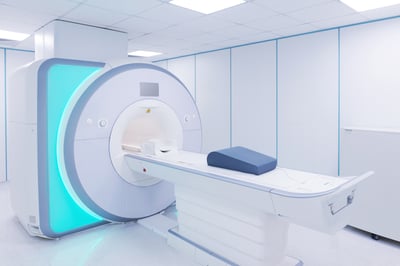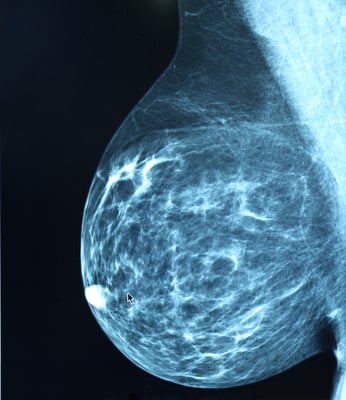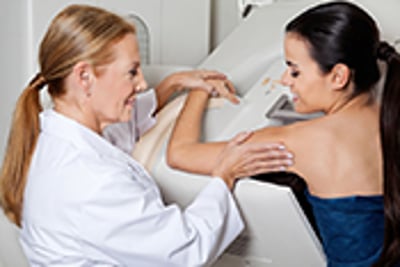FORCE's eXamining the Relevance of Articles for You (XRAY) program looks behind the headlines of cancer news to help you understand what the research means for you.
XRAY is a reliable source of hereditary cancer research-related news and information.
Learn more about the XRAY program
Keyword: detection, Categories Screening
Relevance: High


Strength of Science: Medium-High


Research Timeline: Human Research


Study : Prostate cancer screening may benefit people with Lynch syndrome
Relevance: High


Strength of Science: Medium-High


Research Timeline: Human Research


Most relevant for: People with Lynch syndrome
Initial results from the IMPACT trial show that PSA testing to screen for prostate cancer in people with Lynch syndrome can detect aggressive early prostate cancers. These findings support the use of PSA screening in men with Lynch syndrome, particularly men with an inherited mutation in an MSH2 or MSH6 gene. (Posted 11/10/22)
Este artículo está disponible en español.
Read More
Relevance: High


Strength of Science: High


Research Timeline: Post Approval


Study : Screening for pancreatic cancer detects early-stage disease and improves survival
Relevance: High


Strength of Science: High


Research Timeline: Post Approval


Most relevant for: People at increased risk for pancreatic cancer because of family history or an inherited mutation.
A research study has shown that screening for pancreatic cancer in people with an inherited mutation or family history was able to detect early-stage pancreatic cancers and improve survival. These results will likely change pancreatic cancer screening guidelines for high-risk individuals (Posted 8/30/22)
Este artículo está disponible en español.
Read More
Update : Blood tests called liquid biopsies for cancer screening, monitoring and treatment
Most relevant for: People considering a liquid biopsy to screen for cancer
Could a simple blood test change cancer detection, treatment and monitoring? Several companies are offering a type of blood test known as a liquid biopsy to detect multiple cancers at their earliest stages, monitor response to treatment and help choose the best treatment. Although progress has been made using liquid biopsies to treat cancer, these tests have not yet been shown to detect cancer early enough to save lives. (posted 9/29/21)
Este artículo está disponible en español.
Read More
Relevance: Medium-High


Strength of Science: Medium-High


Research Timeline: Post Approval


Study : Knowing about an inherited BRCA mutation improves outcomes for women with breast cancer
Relevance: Medium-High


Strength of Science: Medium-High


Research Timeline: Post Approval


Most relevant for: Young women with, or at high risk for an inherited BRCA mutation
Inherited mutations in the BRCA1 and BRCA2 genes are linked to a high lifetime risk of breast and other cancers. This study shows that women who know that they have a BRCA mutation before they are diagnosed with breast cancer have improved outcomes including diagnosis at earlier stages and improved overall survival. (10/26/20)
Read More
Relevance: High


Strength of Science: Medium-High


Research Timeline: Post Approval


Study : MRI or mammograms for detecting breast cancer in families with unknown genetic mutations?
Relevance: High


Strength of Science: Medium-High


Research Timeline: Post Approval


Most relevant for: People with a personal or family history of cancer where no mutation has been found
MRI and mammograms are used together to detect breast cancer in high-risk women who test positive for a BRCA or other gene mutation that increases the risk for breast cancer. For women with a family history of breast cancer but no known genetic mutation, increased screening is recommended. But what method is best? A recent clinical trial in the Netherlands compared MRI and mammography for this population. (8/15/19)
Read More
Relevance: Medium-High


Strength of Science: Medium-High


Study : Diagnosis and treatment delays in young women with breast cancer
Relevance: Medium-High


Strength of Science: Medium-High


Most relevant for: Young women who find a breast lump and young women newly-diagnosed with breast cancer
Young women are more likely to have delays in a breast cancer diagnosis and treatment. Factors that affect these delays include pregnancy, breastfeeding, financial concerns and having a family history of breast or ovarian cancer. (8/5/19)
Este artículo está disponible en español.
Read More
Relevance: High


Strength of Science: High


Research Timeline: Post Approval


Study : Should biannual MRIs replace annual mammograms in high-risk women?
Relevance: High


Strength of Science: High


Research Timeline: Post Approval


Most relevant for: Women at increased risk for breast cancer due to an inherited mutation
The risk of breast cancer is exceptionally high in women who have a personal or family history of breast cancer or who carry a mutation in BRCA or certain other genes. More frequent screening is one strategy for early detection of breast cancer for these women. Study results presented at the 2017 San Antonio Breast Cancer Symposium suggest that MRI screening every 6 months may be more effective than the currently recommended annual breast MRI and annual mammogram in detecting early stage breast cancers-which are more treatable-in high-risk women. (2/1/18)
Read More
Relevance: Medium


Strength of Science: Medium


Research Timeline: Post Approval


Study : Do physicians recommend breast cancer screenings based on guidelines?
Relevance: Medium


Strength of Science: Medium


Research Timeline: Post Approval


Most relevant for: Women at average risk for breast cancer
Several guidelines help physicians decide when a woman should begin screening for breast cancer and how often she should be screened. However, are these guidelines put into use in the clinic? (8/8/17)
Read More
Relevance: Medium-High


Strength of Science: High


Research Timeline: Post Approval


Study : How do ultrasound and mammography compare in breast cancer screening?
Relevance: Medium-High


Strength of Science: High


Research Timeline: Post Approval


Most relevant for: Young women at high risk for breast cancer with limited access to mammography and MRI is not easily accessible
Mammography has been shown to reduce breast cancer deaths; however, women in developing countries don’t have easy access to mammography. Ultrasound screening, on the other hand, is portable and less expensive, and could be an alternative to mammography. This study compared mammography to ultrasound in women with dense breasts and found the two techniques have similar cancer detection rates, although the false positive rate is higher with ultrasound. (02/16/16)
Read More
